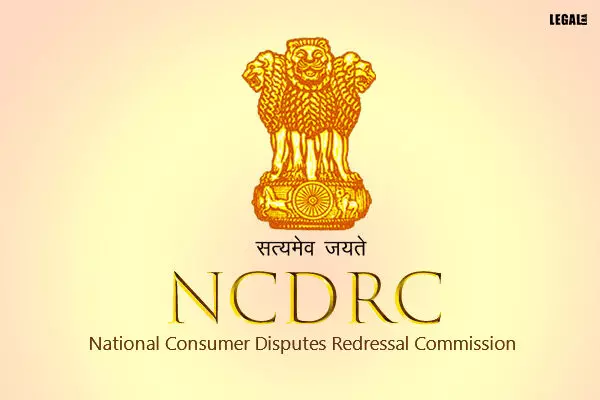- Home
- News
- Articles+
- Aerospace
- Artificial Intelligence
- Agriculture
- Alternate Dispute Resolution
- Arbitration & Mediation
- Banking and Finance
- Bankruptcy
- Book Review
- Bribery & Corruption
- Commercial Litigation
- Competition Law
- Conference Reports
- Consumer Products
- Contract
- Corporate Governance
- Corporate Law
- Covid-19
- Cryptocurrency
- Cybersecurity
- Data Protection
- Defence
- Digital Economy
- E-commerce
- Employment Law
- Energy and Natural Resources
- Entertainment and Sports Law
- Environmental Law
- Environmental, Social, and Governance
- Foreign Direct Investment
- Food and Beverage
- Gaming
- Health Care
- IBC Diaries
- In Focus
- Inclusion & Diversity
- Insurance Law
- Intellectual Property
- International Law
- IP & Tech Era
- Know the Law
- Labour Laws
- Law & Policy and Regulation
- Litigation
- Litigation Funding
- Manufacturing
- Mergers & Acquisitions
- NFTs
- Privacy
- Private Equity
- Project Finance
- Real Estate
- Risk and Compliance
- Student Corner
- Take On Board
- Tax
- Technology Media and Telecom
- Tributes
- Viewpoint
- Zoom In
- Law Firms
- In-House
- Rankings
- E-Magazine
- Legal Era TV
- Events
- Middle East
- Africa
- News
- Articles
- Aerospace
- Artificial Intelligence
- Agriculture
- Alternate Dispute Resolution
- Arbitration & Mediation
- Banking and Finance
- Bankruptcy
- Book Review
- Bribery & Corruption
- Commercial Litigation
- Competition Law
- Conference Reports
- Consumer Products
- Contract
- Corporate Governance
- Corporate Law
- Covid-19
- Cryptocurrency
- Cybersecurity
- Data Protection
- Defence
- Digital Economy
- E-commerce
- Employment Law
- Energy and Natural Resources
- Entertainment and Sports Law
- Environmental Law
- Environmental, Social, and Governance
- Foreign Direct Investment
- Food and Beverage
- Gaming
- Health Care
- IBC Diaries
- In Focus
- Inclusion & Diversity
- Insurance Law
- Intellectual Property
- International Law
- IP & Tech Era
- Know the Law
- Labour Laws
- Law & Policy and Regulation
- Litigation
- Litigation Funding
- Manufacturing
- Mergers & Acquisitions
- NFTs
- Privacy
- Private Equity
- Project Finance
- Real Estate
- Risk and Compliance
- Student Corner
- Take On Board
- Tax
- Technology Media and Telecom
- Tributes
- Viewpoint
- Zoom In
- Law Firms
- In-House
- Rankings
- E-Magazine
- Legal Era TV
- Events
- Middle East
- Africa
Issues regarding terminal benefits would not fall under the ambit of Consumer Courts: NCDRC

Issues regarding terminal benefits would not fall under the ambit of Consumer Courts: NCDRC
Gives petitioner the liberty to approach the concerned authorities
The National Consumer Disputes Redressal Forum (NCDRC) has held that disputes regarding the withholding of terminal benefits would not fall under the jurisdiction of consumer courts. The benefits, including gratuity or provident fund (employer's contribution), would be adjudicated upon by the competent services tribunal or civil court.
The presiding member Dinesh Singh and member Karuna Nand Bajpayee, while ruling on the Kondareddygari Adinarayanareddy vs State Bank of Hyderabad & Anr case, observed, "As far as gratuity is concerned, it is undisputedly a service matter and not within the purview of the Consumer Protection Act, 1986.
"As far as the provident fund (bank contribution) is concerned, though it is settled that an employee-member of the employees' provident fund scheme is a 'consumer' within the meaning of the Act, it cannot be said of the bank's provident fund scheme. Also, the pristine rule in vogue is that these issues have been the subject matter of adjudication by the competent services tribunal or civil court."
The NCDRC was considering a revision petition moved by the complainant against the orders of the State Commission and District Commission.
In 2005, the complainant was dismissed from service at the bank for securing a job in the reserved category using a false caste certificate. He approached the District Commission challenging the bank's decision to withhold a portion of the provident fund and gratuity upon dismissing him from service.
The respondent bank raised a preliminary objection arguing that the petition would not be maintainable as the complainant was not a 'consumer' as per the Consumer Protection Act.
However, the NCDRC noted that both the District Commission and the State Commission ignored this preliminary objection. While the District Commission had dismissed the case, the State Commission dismissed it, giving the liberty to the complainant to approach a civil court.
The NCDRC stated that the Commissions should have first addressed the issue of jurisdiction and then passed the orders. It held that grievances regarding withholding of the bank's contribution were matters to be adjudicated by the competent service tribunal or civil court.
The forum set aside the orders of both Commissions, leaving the liberty to the complainant to approach the appropriate services tribunal or civil court under the Limitation Act, 1963.
While advocate Abhishek Chaudhary appeared as amicus curiae and advocate Amit Singh represented the petitioner, the respondents were advised by advocates Ritesh Khare, Siddharth Sangal, and Pawan Kumar Ray.



